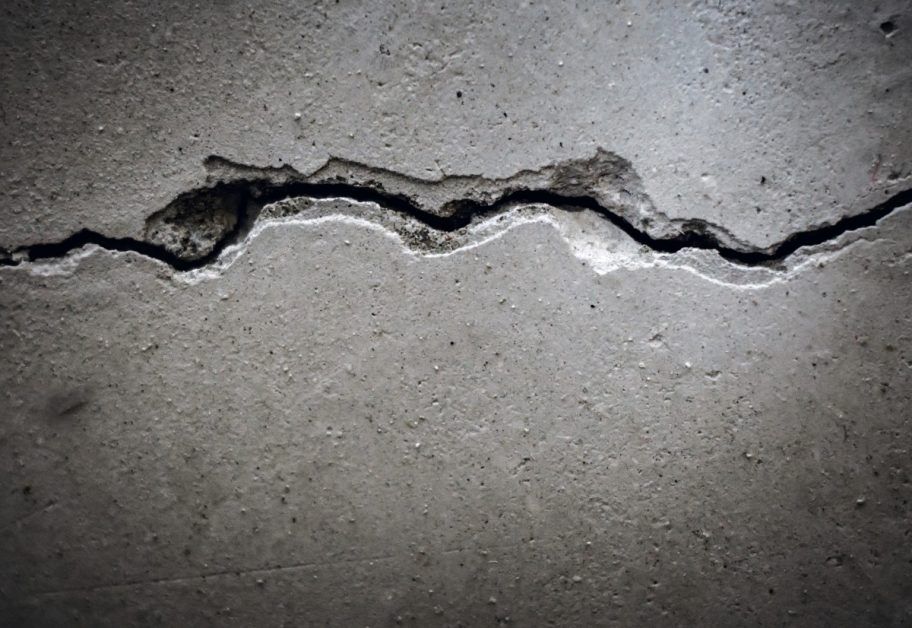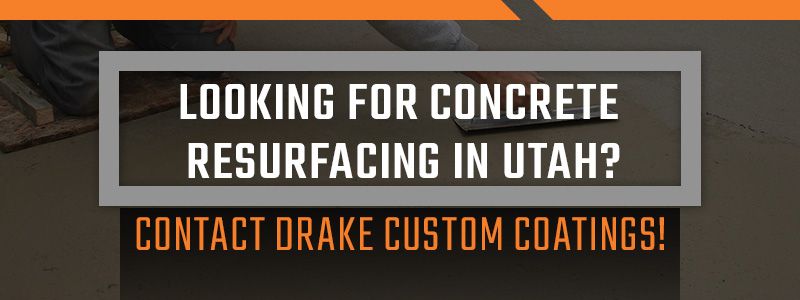Concrete surfaces are made to undergo constant abuse from heavy traffic and adverse conditions.

WHY DOES CONCRETE CRACK?
WHY DOES CONCRETE CRACK?
Concrete surfaces are made to undergo constant abuse from heavy traffic and adverse conditions. And even though concrete is one of the longest-lasting and most economical building materials, even the best concrete is not made to withstand years of wear and tear, especially in commercial and industrial applications, and will eventually crack. Whether it’s roads, driveways, sidewalks, or garage flooring, eventually, cracking is inevitable.
WHY DOES CONCRETE CRACK?
There are a number of reasons concrete cracks, and for the most part, the damage is merely an eyesore. The damage may not immediately mean a structural defect, but over time, cracked concrete can cause a safety issue. Either way, eyesore or safety hazard, it’s always a good idea to hire a professional for concrete repair.
To help you prevent the need for concrete repair, in this blog, we are going to share the most common causes of cracked concrete.
PLASTIC SHRINKAGE
In its non-solid state, concrete is simply a mixture of water and cement. As it hardens and the water evaporates, it also shrinks. If the mixture is too watery, more shrinkage will occur – and too much shrinkage leads to cracks in the finished project. Adding too much water takes up space, causing the solid ingredients of the mix to separate. When the mixture hardens and the water evaporates, the spaces in the mix remain, leaving cracks. Most of the time, this results in only hairline fractures, but they can worsen over time. This is usually a cosmetic flaw rather than a structural one, and a simple fix for a professional concrete contractor.
EXPANSION AND CONTRACTION
Just like every solid, the size and shape of concrete can subtly change based on weather conditions. Hot weather conditions can cause concrete slabs to expand. If the concrete expands and interferes with an object that doesn’t flex or give during that expansion, it will likely crack. Cold weather conditions can cause concrete to contract, which may also cause the surface to crack.
HEAVING AND SETTLING
Heaving refers to concrete that is raised by either ground movement or by excessive freeze and thaw cycles. The growth of a tree’s roots or excessive temperature fluctuations can cause the ground to push upwards on the concrete, causing it to crack and break. Settling can also cause concrete to crack — if a tree is removed and roots underneath begin to decompose, the soil may shift and cause cracking. Like expansion and contraction, heaving and settling are likely to occur over time.
EXCESSIVE PRESSURE
When too much weight is placed on a concrete surface, it can shift the ground beneath the slab, or simply break the slab itself. Pressure cracks are typically caused by not being conscious of weight limits for certain concrete surfaces.
PREMATURE DRYING
Crazing or crusting cracks are very small surface cracks that almost look like spider webs and are caused when laid concrete is improperly dried. If the concrete slab doesn’t have enough moisture or loses moisture too rapidly, cracks are likely to develop. Since these cracks are minor and only visible on the surface, they are a fairly simple fix.
HOW TO AVOID CRACKED CONCRETE
As mentioned, cracking is inevitable with concrete. However, there are certain things you can do to reduce the chances of cracking. Making sure there is enough moisture in your mixture is the first essential step to preventing cracks from forming. However, concrete coating surfaces can help add some extra durability to the surface.
HOW TO REPAIR CRACKED CONCRETE
If your property has cracked concrete, there are some ways it can be repaired, but typically, you’ll always be better off calling in a professional to perform concrete repair. If you need concrete repair in Utah, Drake Custom Coatings can help! Our concrete contractors can repair even the most damaged concrete flooring surfaces with concrete resurfacing. To learn more about how we can repair your cracked concrete, contact us!

